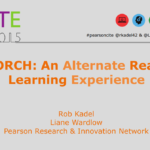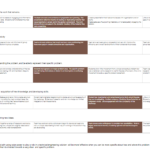
Buying essays: how to make sure assessment is authentic
By Shirley Alexander, University of Technology, Sydney
The essay, as the primary form of assessment, should be dead. This is the kind of comment that terrifies academics everywhere – but it is an idea that I think we all need to consider. The “news” that there are cheating factories which have penetrated universities in Australia was not news to anyone in academia.
Universities have complex processes to discover when students cheat. They apply those processes to a range of assessments, particularly to discover plagiarism. However, there is a clear answer if universities want to ensure that all students do their own work – and that’s by changing to what educators call authentic assessment.
Assessment should mirror real life
Current methods of assessment do not mirror real life. When, for instance, in one’s real life does one ever have to write an essay, unless you happen to be an academic? And when in our working lives do we ever sit for exams – particularly the kinds of exams that are closed-book and require memorisation of content for the purposes of reproduction?
Even those exams that I would describe as better – those that allow students to take in their notes and annotated textbooks – don’t allow those sitting the exam to search the internet and online databases. In real life, no matter how much pressure we are under, we get to search the internet for better, more particular knowledge. More contentious is the idea of “phoning a friend” to get ideas.
A very small minority of students are using more and more sophisticated methods of cheating. That includes paying ghost writers, which effectively outsources the learning. Pity the employer who must rely on those people who never effectively learnt how to do the task themselves.

Flickr/Jack Hynes, CC BY
With the kinds of assessments universities have now, it is becoming increasingly difficult to detect that kind of cheating, unless of course the student refuses to pay the ghost writer, who then promptly informs the university of their role in the student’s success.
Biometric scanning, of course, will eventually sort out the students who get someone else to sit the exam. But I think that kind of cheating is still very unusual. So what’s the real challenge?
In many respects, my university (the University of Technology, Sydney) is already on the way. Academics are increasingly ditching lectures in favour of a learning model that engages students in what we call “high-touch”, face-to-face learning experiences. That means students want to be part of the learning activities that the university offers. And now the challenge is to replace standard assessments in the same way.
The alternative to exams and essays
Prospective employers want to know exactly what graduates can do and, as part of the selection and interview process, increasingly ask applicants to complete the kinds of tasks they might be expected to perform in the role they are applying for, including the ability to work as part of a team.
Universities need to mirror this to prepare students for the workplace. Some examples of real-world tasks that have been introduced at UTS include:
- Students in health are engaged in caring for patients as early as first year under the supervision of trained clinicians;
- Architecture students work with real clients to develop plans, costings and council submissions;
- Engineering students design and build for real projects;
- Journalism students investigate, report and deliver stories across a range of platforms and external partners then publish those same stories; and
- Law students enter moots and volunteer in non-profit organisations.
The benefit of this kind of assessment is that it includes all stakeholders – and that means future employers.
Universities are in the midst of significant change in moving to this new approach to assessment. When they get there, students will not only have a higher-quality learning experience, but they will be even better prepared for the kinds of complex tasks and roles they will undertake. And, of course, cheating will be non-existent.
That’s the path to authentic assessment.
![]()
Shirley Alexander does not work for, consult to, own shares in or receive funding from any company or organisation that would benefit from this article, and has no relevant affiliations.
This article was originally published on The Conversation.
Read the original article.





